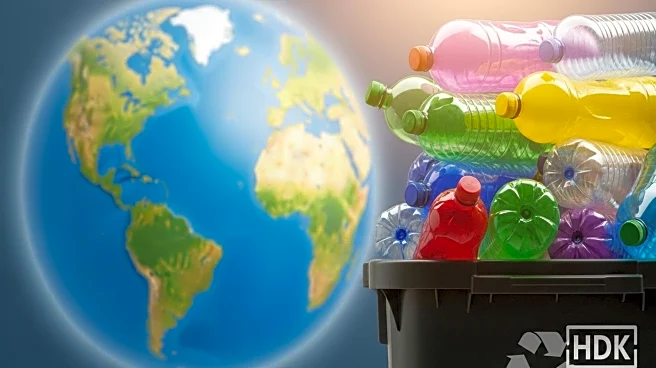What's Happening?
The UK is missing out on a potential £2bn recycling industry due to the export of 600,000 tonnes of plastic waste annually. This has led to the closure of 21 recycling factories over the past two years, driven by the cheap price of virgin plastic and an influx of low-cost plastic from Asia. Critics argue that exporting waste to countries like Indonesia, which struggles with plastic pollution, is unethical and irresponsible. The UK government has been urged to close loopholes that make exporting plastic cheaper than processing it domestically, to foster a sustainable recycling industry.
Why It's Important?
The decline of the UK recycling industry has broader implications for environmental sustainability and economic growth. By exporting plastic waste, the UK loses potential jobs and investment opportunities, while contributing to global pollution. Closing the loopholes could create thousands of jobs and boost the economy, while reducing the environmental impact of plastic waste. The situation highlights the need for stronger domestic policies to manage waste responsibly and support the circular economy.
What's Next?
Policymakers are being called upon to implement changes that incentivize domestic recycling and reduce exports. The UK’s plastic packaging tax is a step towards encouraging the use of recycled materials, but further measures are needed to ensure a level playing field for the recycling industry. The government’s commitment to cleaning up plastic waste will be crucial in shaping future policies and investments.









